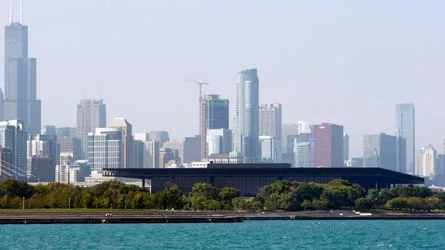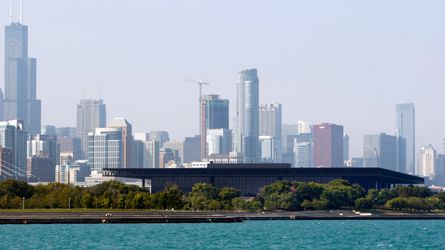
Corporate citizenship is an important driver of change just about anywhere you go.
Ken Griffin, formerly Chicago’s richest man, did plenty of nice things in the city with his billions, notably supporting Lurie Children’s Hospital and extending a bike path along Lake Michigan. But when the hedge fund manager felt the violence in Chicago was too much to bear, and after he unsuccessfully seeded a political overhaul in Illinois seeking to turn it around, he took his marbles, sold his homes and moved to Miami.
Illinois is home to a host of corporations that are pledging to invest in Chicago rather than flee from it.
In a recent Bloomberg story, heavy hitters, including McDonald’s, Ulta Beauty and the financial services company Morningstar said they will devote money and jobs toward stemming the tide of violence in the city.
It’s not entirely altruistic, of course. The less violence, the more comfortable their employees feel going to work.
Still, it’s goal is lofty: to reduce murders in Chicago by half and shootings by 40% over the next five years.
Everybody wants the whole Chicagoland area to be safer. That will make it easier and more sensible to tell people, Yes, they do need to show up for work, three, four or five days a week.”
Jim Crown, head of a civic group task force on public safety
The companies plan to do so by bankrolling anti-violence and youth intervention programs and creating a sense of hope in the city’s poorer and more violent communities by hiring many more people from them.
The Civic Committee of the Commercial Club of Chicago rolled out the plan two weeks after Brandon Johnson was sworn in as the city’s mayor. While many will argue about how to reduce it, addressing the violence problem in Chicago is something just about everyone can agree on.
“Everybody wants the whole Chicagoland area to be safer,” said Jim Crown, who heads the civic group’s task force on public safety. “That will make it easier and more sensible to tell people, Yes, they do need to show up for work three, four or five days a week.”
Indeed. It’s not just important for Chicago residents but for suburbanites who commute to Chicago and traditionally spend some of their discretionary income there.
Good corporate citizens make participation in the communities in which they exist a part of their culture. Engaging senior leadership in the process is an important step in that direction.
Former U.S. Secretary of Education Arne Duncan, who has developed an anti-gun program in Chicago, noted the importance of corporate citizenship.
“For too long, they were on the sidelines, they weren’t engaged, but they are now engaged,” he said. “Every indication I have is they know we didn’t get here overnight. So it will take years to do it and they’ve got to stay at the table.”
Engaged corporate citizenship doesn’t just help communities but rewards the companies with better sales, stronger brand loyalty and an enhanced ability to attract good employees. We applaud these efforts and hope they bear fruit.
It’s good business, but also more than just that.
The Daily Herald







